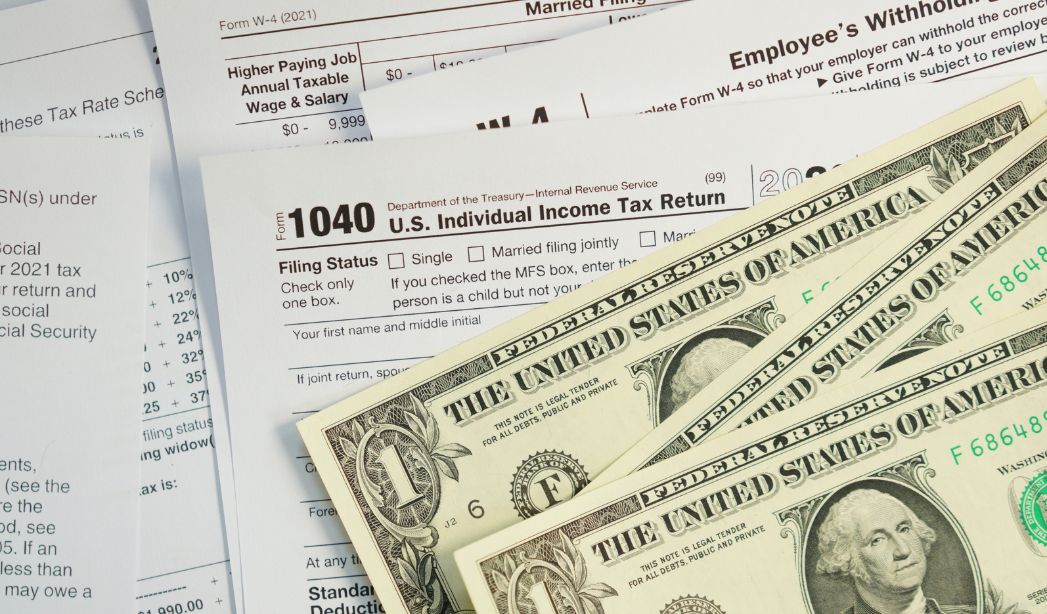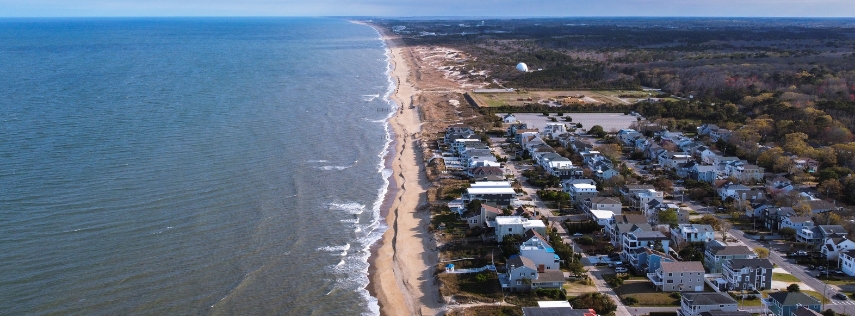VA Beach Cost of Living – A Balance of Comfort and Convenience
Virginia Beach, situated along the southeastern coast of Virginia, is renowned for its expansive beaches, vibrant tourism, and significant military presence. Beyond its coastal allure, understanding the VA Beach cost of living is crucial for potential residents.
So, how much does it cost to live in Virginia Beach?
According to the Virginia Beach Department of Economic Development, the city’s overall cost of living index is 101.0, slightly above the national average of 100. This composite index reflects various factors, including housing, utilities, and transportation. For housing, the typical home value in Virginia Beach is approximately $404,130, which is competitive compared to national figures. Renting a two-bedroom apartment averages around $1,590 per month, aligning closely with national rental costs. Utilities in Virginia Beach are about 11.3% higher than the national average, with the average monthly utility bill around $387. Transportation costs are approximately 16.9% lower than the national average, making commuting and travel more affordable.
Want the full breakdown? Here are the topics covered in the article:
- Overview
- Housing Costs
- Utility Expenses
- Transportation Costs
- Grocery and Food Expenses
- Healthcare Costs
- Taxes in Virginia Beach
- Childcare and Education Costs
- Insurance Costs
- Miscellaneous Expenses
- FAQs
- Conclusion
Read on to explore housing, transportation, taxes, food, and more to get a clear picture of the cost of living in Virginia Beach.
Overview of Virginia Beach’s Cost of Living
Virginia Beach’s cost of living index is 101.0, placing it just above the national average of 100. While residents may pay slightly more for goods and services, the city remains a relatively affordable option compared to other major U.S. cities—especially considering its oceanfront location, quality of life, and economic stability.
When it comes to overall affordability, Virginia Beach stands out as a balanced choice. It’s significantly less expensive than cities like New York, San Francisco, and Los Angeles, while offering more value and amenities than many lower-cost alternatives.
Cost of Living Comparison
| City | Cost of Living Index | Difference from Virginia Beach |
| Virginia Beach, VA | 101.0 | — |
| Washington, D.C. | 141.9 | +40.5% |
| San Francisco, CA | 169.5 | +67.9% |
| Baltimore, MD | 101.0 | 0% |
| Charlotte, NC | 99.0 | –2.0% |
| New York, NY | 227.0 | +125.7% |
| Los Angeles, CA | 150.0 | +48.5% |
| Chicago, IL | 105.7 | +4.7% |
| Houston, TX | 94.0 | –6.9% |
| Atlanta, GA | 100.4 | –0.6% |
This snapshot shows that while Virginia Beach is slightly more expensive than some southern cities, it’s far more affordable than many major urban hubs—making it an appealing middle ground for those seeking coastal living without sky-high expenses.

Housing Costs in Virginia Beach
Housing is a significant component of the VA Beach cost of living, encompassing both homeownership and rental markets.
Homeownership
As of early 2025, the median home price in Virginia Beach stands at approximately $404,130, reflecting a 4.0% increase over the past year. This figure is higher than both the national median home price of around $338,100 and Virginia’s state median of approximately $372,300, indicating a relatively competitive housing market in the city.
Renting
For those considering renting, the average monthly rent varies by property size:
- One-bedroom apartment: Approximately $1,499 per month.
- Two-bedroom apartment: Approximately $1,700 per month.
- Three-bedroom apartment: Approximately $2,043 per month.
The rental market in Virginia Beach is notably influenced by the city’s robust tourism industry. High demand for short-term vacation rentals, especially during peak tourist seasons, can lead to a reduced availability of long-term rental properties. This dynamic often results in increased competition and higher rental prices for residents seeking permanent housing.
Utility Expenses in Virginia Beach
When planning a move to Virginia Beach, it’s essential to account for utility expenses, as they contribute significantly to the overall cost of living. On average, Virginia residents spend approximately $195 per month on electricity, which is about 15% lower than the national average.
Here’s a breakdown of typical monthly utility costs in Virginia:
| Utility Service | Average Monthly Cost |
| Electricity | $195 |
| Natural Gas | $80 |
| Water | $40 |
| Cable & Internet | $125 |
Factors Influencing Utility Costs in Virginia Beach:
Several factors can affect utility expenses in the area:
- Climate: Virginia Beach experiences a humid subtropical climate, leading to higher electricity usage during hot summers for air conditioning and cooler winters for heating.
- Housing Characteristics: The size, age, and energy efficiency of a home can impact utility costs. Larger or older homes may have higher energy consumption.
- Energy Prices: Fluctuations in energy market prices can influence monthly bills, with factors such as fuel costs and infrastructure investments playing a role.
- Personal Consumption Habits: Individual behaviors, including thermostat settings and appliance usage, directly affect utility expenses.
In comparison to national averages, Virginia Beach’s utility costs are relatively moderate. For instance, the average monthly electricity bill in the U.S. is approximately $136.40. Therefore, Virginia Beach residents may find their electricity expenses to be slightly higher than the national average.

Transportation Costs in Virginia Beach
Transportation expenses are an important part of the VA Beach cost of living, encompassing both public transit options and private vehicle ownership costs. Understanding these can help residents and newcomers budget effectively.
Public Transportation
Virginia Beach is served by Hampton Roads Transit (HRT), offering several bus routes and seasonal trolley services:
- Bus Services: HRT operates multiple bus routes throughout the city and neighboring areas. A single adult fare is $2.00 per ride. Children under 38 inches tall can ride free (up to two per adult). For frequent riders, HRT offers passes such as the 1-Day GoPass for $4.00 and a 3-Day GoPass for $8.00.
VB Wave Trolley: During the summer months, the VB Wave Trolley provides convenient access to the oceanfront and other attractions. Fares are consistent with regular bus services, making it an affordable option for both residents and tourists.
Private Transportation
For those who own vehicles, several costs contribute to overall transportation expenses:
- Fuel Prices: As of April 1, 2025, the average price for regular unleaded gasoline in Virginia is $3.026 per gallon.
- Car Insurance: The average annual cost of car insurance in Virginia is approximately $1,134 for full coverage, equating to about $94.50 per month.
- Maintenance and Repairs: Routine maintenance, such as oil changes, tire rotations, and unexpected repairs, should also be factored into the overall cost of vehicle ownership.
According to the Virginia Beach Economic Development, the transportation cost index for the Virginia Beach Metropolitan Statistical Area (MSA) is 95.4, indicating that transportation costs are approximately 4.6% lower than the national average.

Grocery and Food Expenses in Virginia Beach
When evaluating the VA Beach cost of living, it’s important to consider grocery and dining expenses, as they constitute a significant portion of monthly budgets.
Grocery Costs
The cost of groceries in Virginia Beach is approximately 0.3% lower than the national average. This slight difference indicates that residents can expect to pay prices for food items that are nearly on par with those found across the country.
Dining Options
Virginia Beach offers a diverse culinary scene, accommodating a range of budgets:
- Budget-Friendly Eateries: Numerous affordable dining options are available, including local diners, food trucks, and casual restaurants. For instance, establishments like West Beach Tavern and Footers Sports Pub are known for their reasonably priced menus.
- Mid-Range Restaurants: A meal at a mid-range restaurant typically costs between $15 to $30 per person, offering a balance between cost and dining experience.
- Upscale Dining: For those seeking a more luxurious experience, Virginia Beach boasts several high-end restaurants, especially in areas like the Oceanfront and Town Center. These establishments offer gourmet meals with prices reflecting the premium service and ambiance.
Impact of Tourism on Food Prices
Tourism significantly influences the local food industry. In 2023, visitors spent over $1.1 billion on food and beverages in Virginia Beach, accounting for 42% of total visitor expenditures. This substantial influx of tourists can lead to increased demand, potentially affecting food prices, particularly in popular tourist areas.
Additionally, the city is considering raising the restaurant meals tax from 5.5% to 6%, which could further impact dining costs for both residents and visitors.

Healthcare Costs in Virginia Beach
Understanding healthcare expenses is crucial for residents and those considering a move to Virginia Beach. As part of the VA Beach cost of living, the city’s healthcare costs are approximately 4.4% lower than the national average, offering some financial relief to its inhabitants.
Health Insurance Premiums
Health insurance costs in Virginia can vary based on factors such as age, plan type, and coverage level. For instance, the average monthly premium for an individual health insurance plan is around $378.91.
Doctor Visits
The cost of medical consultations depends on the healthcare provider and the nature of the visit. For example, an orthopedic new patient office visit in Virginia ranges from $110 to $275.
Prescription Costs
Prescription medication expenses can significantly impact overall healthcare spending. Notably, Virginians have historically spent more on prescriptions compared to the national average. In 2020, the average per capita spending on prescription drugs in Virginia was $1,500, which is 36% higher than the national average of $1,100.
Quality and Accessibility of Healthcare Facilities
Virginia Beach is home to several reputable healthcare institutions, ensuring residents have access to quality medical services. The city’s commitment to healthcare is reflected in its ranking; it was recently placed eighth among 150 urban communities in the U.S. for quality of life, affordability, and healthcare.

Taxes in Virginia Beach
Virginia Beach offers a relatively moderate tax environment, which can make a noticeable difference in your overall VA Beach cost of living. From everyday purchases to income and property ownership, here’s how local tax rates compare.
Sales Tax
Residents of Virginia Beach pay a combined sales tax rate of 6%, which includes a 4.3% state tax, a 1% local option tax, and a 0.7% regional transportation tax. This rate is slightly below the national average, making retail purchases a bit more affordable. Essentials like groceries are taxed at a reduced rate of 1%, helping residents save on day-to-day needs.
| Tax Type | Rate |
| State Sales Tax | 4.3% |
| Local Option Tax | 1.0% |
| Regional Transportation Tax | 0.7% |
| Total Sales Tax | 6.0% |
| Sales Tax on Groceries | 1.0% |
Property Tax
Property taxes in Virginia Beach are based on assessed home values, with a rate of $0.97 per $100 of assessed value. For example, a home assessed at $300,000 would incur about $2,910 annually in property taxes. This rate is competitive compared to other cities and plays a key role in shaping the overall VA Beach cost of living, offering savings for homeowners in the long term.
| Home Assessed Value | Estimated Annual Property Tax |
| $200,000 | $1,940 |
| $300,000 | $2,910 |
| $400,000 | $3,880 |
Income Tax
Virginia uses a progressive state income tax structure with four brackets. The highest rate of 5.75% applies to income over $17,000, which makes the tax system relatively flat once earnings exceed that threshold. Virginia Beach does not impose a local income tax, and eligible residents may benefit from deductions—such as those for certain retirement income.
| Taxable Income Range | Tax Rate |
| Up to $3,000 | 2% |
| $3,001 – $5,000 | 3% |
| $5,001 – $17,000 | 5% |
| Over $17,000 | 5.75% |
Overall, Virginia Beach provides a tax structure that’s both manageable and predictable, helping residents better plan for their financial futures.

Childcare and Education Costs in Virginia Beach
Understanding the expenses associated with childcare and education is crucial for families considering a move to Virginia Beach. These costs are an important part of the overall VA Beach cost of living. Below is an overview of the costs related to daycare, schooling, and higher education in the area.
Childcare Costs
Childcare expenses in Virginia Beach can vary based on the child’s age, care type, and provider. As of March 2025, the average hourly rate for child care providers in Virginia Beach is approximately $17.88, translating to about $716 per week for a 40-hour week, or roughly $2,328 per month for 130 hours of care.
Annual childcare costs in Virginia Beach are approximately $11,700, which is comparable to other major cities in Virginia.
Education Costs
Virginia Beach offers a variety of educational options, from public schools to private institutions. Below is an overview of the costs for both.
Public Schools
Virginia Beach City Public Schools (VBCPS) is the largest school division in Hampton Roads and the 50th largest in the nation, serving approximately 70,000 students across 87 schools. The district offers a comprehensive curriculum, including advanced academic programs, honors classes, and enrichment opportunities. Public schooling is funded through taxes, so there are no direct tuition costs for residents.
Private Schools
For families considering private education, Virginia Beach offers several options with varying tuition rates. Below is a selection of private schools in the area:
| School | Grades | Annual Tuition |
| Virginia Beach Friends School | PK-12 | $11,500 – $16,500 |
| Cape Henry Collegiate | PK-12 | $8,950 – $25,080 |
| OakTree Academy | K4-12 | $4,990 – $6,690 |
| Gateway Christian Academy | PK-12 | $7,870 |
Higher Education
Virginia Beach is home to several higher education institutions, each with its own tuition structure:
- Tidewater Community College (TCC): Offers affordable tuition rates for Virginia residents at $195.25 per credit hour, including fees.
- Virginia Wesleyan University: A private institution with full-time tuition set at $36,550 per year for 12-18 credit hours.
- Regent University: Provides various programs with tuition and fees varying by program and student status.
It’s worth noting that Virginia’s in-state tuition and fees are among the nation’s highest, averaging $15,660 for the 2024-25 academic year, compared to the national average of $11,610.

Insurance Costs in Virginia Beach
Understanding insurance expenses is a key part of evaluating the VA Beach cost of living. Here’s a breakdown of typical rates for homeowners, car, and health insurance in the area
Home and Auto Insurance
In Virginia Beach, the average cost for homeowners insurance is about $1,947 per year, which is slightly above the national average. Car insurance premiums in Virginia Beach are typically $2,165 per year, also higher than the national average, but still comparable to many other major cities. The cost for both types of insurance can fluctuate based on factors such as home value, vehicle type, and the driver’s history.
| Insurance Type | Average Annual Cost | Monthly Cost |
| Homeowners Insurance | $1,947 | $162 |
| Car Insurance | $2,165 | $180 |
Miscellaneous Expenses in Virginia Beach
When evaluating the VA Beach cost of living, it’s essential to consider miscellaneous expenses, including entertainment, clothing, and personal care. These costs are approximately 7.9% higher than the national average, influenced by the city’s vibrant tourism industry.
Entertainment and Recreation
Virginia Beach offers a plethora of entertainment options, from its renowned boardwalk to numerous festivals and events. In 2023, tourism spending contributed $324 million in state and local tax revenues, effectively lowering the annual tax burden for each household by more than $1,800. This influx of tourist dollars helps support local entertainment venues and recreational facilities, though it can also drive up prices during peak seasons.
Clothing and Personal Care
The presence of numerous boutiques and salons caters to diverse fashion and personal care preferences. While these services are available year-round, prices may fluctuate with the influx of tourists seeking similar amenities.
Impact of Tourism on Miscellaneous Expenses
Virginia Beach’s status as a prime tourist destination significantly impacts local prices. In 2023, visitors spent over $1.1 billion on food and beverages, accounting for 42% of total visitor spending. This substantial spending supports local businesses but can lead to higher prices, especially during peak tourist seasons.
FAQs about Living in Virginia Beach, VA
Virginia Beach’s cost of living is about 12% higher than the national average, mainly due to housing and utility costs. However, it is still more affordable than many major U.S. cities, like Washington, D.C., or San Francisco. For those seeking a coastal lifestyle with a mix of urban and suburban amenities, Virginia Beach offers a relatively affordable option.
A livable salary in Virginia Beach largely depends on your lifestyle and household size. For a single person, an annual income of $50,000 – $60,000 should cover most living expenses comfortably. For a family of four, a household income of around $75,000 – $85,000 is typically considered livable to ensure adequate savings and discretionary spending.
Yes, Virginia Beach is considered one of the best places to live in Virginia. It offers a high quality of life with its beautiful beaches, strong job market, and family-friendly atmosphere. The city is known for its outdoor recreation, excellent schools, and robust tourism economy, making it a desirable location for both residents and visitors.
To live comfortably in Virginia Beach, you’ll need a household income of at least $50,000 – $60,000 per year, depending on your lifestyle. Housing costs can be the most significant expense, so budgeting for this, along with utilities, groceries, and other expenses, is crucial for maintaining a good standard of living.
If you have any additional questions about living in Virginia Beach, from finding housing to job opportunities, don’t hesitate to reach out. Whether you’re considering moving here or just want to know more, we’re happy to help guide you through the process.
Conclusion
While the VA Beach cost of living is slightly above the national average, the city offers a high quality of life with a unique blend of urban and coastal living. With its affordable housing, excellent schools, and vibrant community, it’s a great place to call home. Interested in building your dream home in Virginia Beach? Contact RBC Homes today and let us help you create the perfect living space for your needs.







